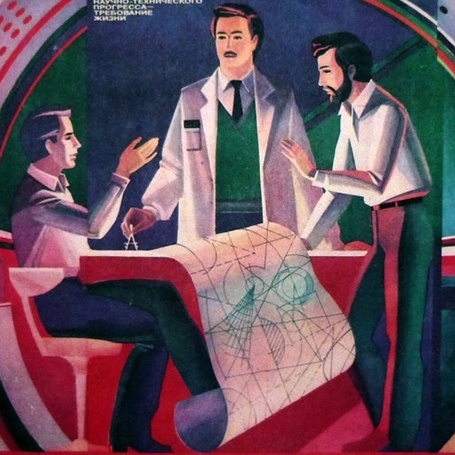Science without borders
Troitsky Variant, 21 Feb 2023
Our Arnold and Landau Fellowships continue a tradition of contact and collaboration between British and Russian scientists dating back to Newton.
In 1703, Sir Isaac Newton sent a copy of his book Principia Mathematica as a present to Peter the Great. In 1825, Tsar Alexander I sent a silver bowl, which he had designed himself, as a tribute to the chemist Sir Humphry Davy. In 1842, the Russian scientist and soldier Pavel Anosov sent the gift of a dagger, forged in damascene steel, to Michael Faraday.
Fast-forward through the decades, and scientific contact between Russia and Britain evolved from mutual admiration into intellectual collaboration. The most recent chapter in this tradition is the creation of ten new Fellowships for Russian physicists and mathematicians at the London Institute for Mathematical Sciences, where I work.
From the earliest days of organised scientific endeavour, relations between the two countries were warm. In the 1660s, the English doctor Samuel Collins served as personal physician to Tsar Alexei Mikhailovich. Ever since the Russian Academy of Sciences was created in 1724, many of its members have become foreign members of the Royal Society. Krusenstern, Chebyshev, Mendeleev, Metchnikoff, Pavlov, Kapitsa, Kolmogorov, Landau, Arnold. The roll call of Royal Society Russians has included some of the grandest names in Russian science.
Created to support British science, the Royal Society doesn’t conduct research under its own roof. However, the Royal Institution in central London, founded in 1799, has for more than two centuries not only supported science but also done it. It was here that resident professors, including both Davy and Faraday, discovered nine new elements and the principles of electromagnetism, and pioneered low temperature physics. And as with the Royal Society, points of contact between the Royal Institution and Russia have been many.
Dmitry Mendeleev, founding father of the periodic table, was a regular visitor at the Royal Institution, collaborating on research with its secretary, Sir Frederick Bramwell. Ivan Pavlov worked with two Royal Institution professors of physiology. When Pavlov died, one of them, Sir Joseph Barcroft, wrote his obituary in Nature, noting that the neurologist was “an object of affection to all with whom he came in contact”. In the 1920s, one Boris Orelkin worked at the Royal Institution on crystallography beside the resident professor, Sir William Bragg.
It just so happens our incoming Russian fellows may stir the ghosts of these compatriots. That is because the London Institute, which has created these new fellowships, is based at the Royal Institution, which hosted the Russian scientists a century ago. The resident professors gave dinners in what are now our rooms, at which Davy’s bowl and, perhaps, Faraday’s dagger adorned the table.
In the 1990s, after the end of the Cold War, the Royal Society launched its Kapitsa Fellowships to bring Russian scientists to the UK. One of the first was the chemist Kirill Zamaraev, who did research at, of all places, the Royal Institution. The Fellowships were named after Pyotr Kapitsa, the Nobel Prize-winning Russian physicist who was also a foreign member of the Royal Society. Such was the Soviet esteem for that association that it’s reported that Stalin himself, when his head of security wanted to arrest Kapitsa, forbade him. Why? Because Kapitsa was a member of the Royal Society.
Five of our Fellowships are named after the theoretical physicist Lev Landau. The other five are named after the mathematician Vladimir Arnold. We choose to honour these two because of our respect for their talents, and our belief that, in science, the spirit of curiosity crosses all borders.
No one better embodied that spirit than Dmitry Mendeleev, who visited England 14 times. When he spoke at the Royal Institution, he praised the “glorious name” of Faraday. His dream, he once declared, was to bring together Russian and British scientists for “the development of the world”.
The noble ambition of Mendeleev is also the aim of our new Russian Fellowships.
Thomas W. Hodgkinson is a science writer at the London Institute for Mathematical Sciences.















